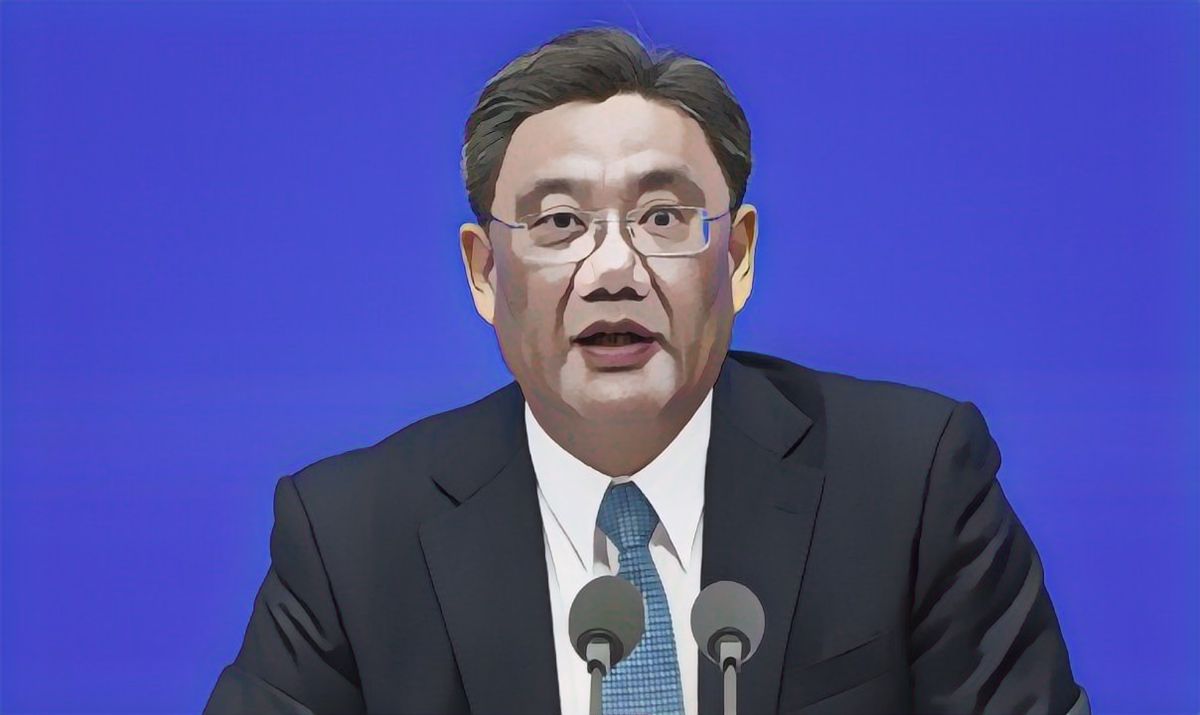Trade Meetings Between China, U.S. Could Signal Thaw

The Lede: Top U.S. and Chinese Commerce and Trade Officials met on the sidelines of APEC in Detroit and Washington, where they raised disagreements while elevating communications between the rivaling economies.
What We Know:
- Chinese Commerce Minister Wang Wentao met with U.S. Secretary of Commerce Gina Raimondo in Washington, D.C. in advance of the Asia Pacific Economic Cooperation (APEC) forum in Detroit.
- In the Motor City, Wang met on the sidelines with U.S. Trade Representative Katherine Tai at the Asia Pacific Economic Council's Second Senior Officials' Meeting, a series of meetings that took place over 10 days in May focusing on practical examples of how trade policies and cooperation on trade and investment through APEC can contribute to sustainable and inclusive trade.
- Detroit had been chosen for the APEC meeting as a city that represents economic revitalization, transformation, and resilience by showcasing cross-border trade with Canada, worker-centric trade policies, and manufacturing. Wang's visit was a small tour on the economic and trade front in the recent efforts by the two countries to increase high-level communications after a several-month hiatus.
- Raimondo and Tai raised complaints about China’s state-led, non-market economic and trade policies as well as recent actions taken against U.S. companies operating in the country. Conversely, Wang complained about U.S. tariffs on Chinese products, U.S. policies on semiconductors and export controls, economic and trade issues with Taiwan, and the exclusion of China from the U.S.-led Indo-Pacific Economic Framework (IPEF)
- These meetings mark the first cabinet-level exchange in months between U.S. and Chinese officials. Earlier in the week, Wang met with representatives of U.S. firms, including Johnson & Johnson, 3M, Dow, Merck, and Honeywell, in Shanghai.
The Background: Tai announced initial trade agreements with Taiwan the week prior to her meeting with Wang. IPEF aims to provide a U.S.-centered alternative to China’s growing influence. Tai held a ministerial meeting of countries in the IPEF talks the day after her meeting with Wang. The U.S. Trade Representative’s office is conducting a four-year review of U.S. tariffs on hundreds of billions of dollars worth of Chinese imports. These meetings follow a meeting of the G7 summit in which U.S.-aligned countries discussed ‘de-risking’ from China.
Likely Outcomes:
- These meetings will set the stage for increased dialogue and communication between the U.S. and China as both sides navigate their geopolitical competition. This could bring clarity and assurance to positions and policies on both sides even if those measures are adversarial. U.S. and Chinese leaders likely recognize the necessity of maintaining communications to avoid unintended escalations in their rivalry. Raimondo, Secretary of State Antony Blinken, and Treasury Secretary Janet Yellen have expressed interest in visiting China. Secretary of Defense Lloyd Austin is also expected to meet his Chinese counterpart Li Shangfu on the sidelines of the Shangri-La Dialogue next week in Singapore.
- U.S. and Chinese policies related to their mutual competition will either could take a more moderate turn in light of these meetings, but that is still uncertain at this stage. The two countries could very well continue on a path of tough stances as each side confirms and fixates on areas of unresolvable disagreement. Observers now watch for policy changes following the next meetings anticipated between U.S. and Chinese officials.
Quotables:
"The benefit of sitting down and having a conversation with interlocutors from Beijing is so that we can understand each other better and understand how we are experiencing the impacts that we have on each other's economies." – Katherine Tai, U.S. Trade Representative
"China will continue to welcome U.S.-funded enterprises to develop in China and achieve win-win results." – Wang Wentao, Chinese Commerce Minister
"The most pressing issue for China and the United States is to establish a dialogue mechanism to clearly state their differences, and then discuss how to solve or ease them. This is in the interests of the companies of both countries." – He Weiwen, senior fellow at the Centre for China and Globalization
Good Reads:
US Trade Rep Tai exchanges objections with China's commerce minister in Detroit meeting (Reuters)
US-China relations continue to thaw at meeting between trade officials in Detroit (SCMP)
‘Candid talks’: China and US trade officials vow to step up communication to manage tensions (SCMP)
U.S., China’s top commerce officials meet to discuss trade concerns (CNBC)
